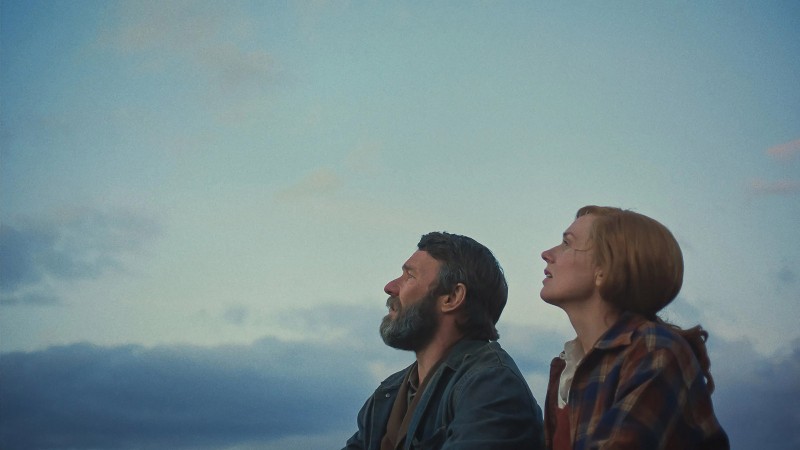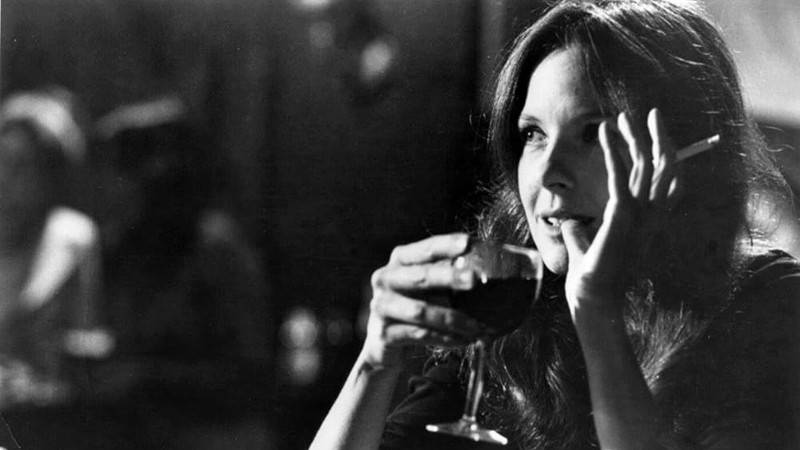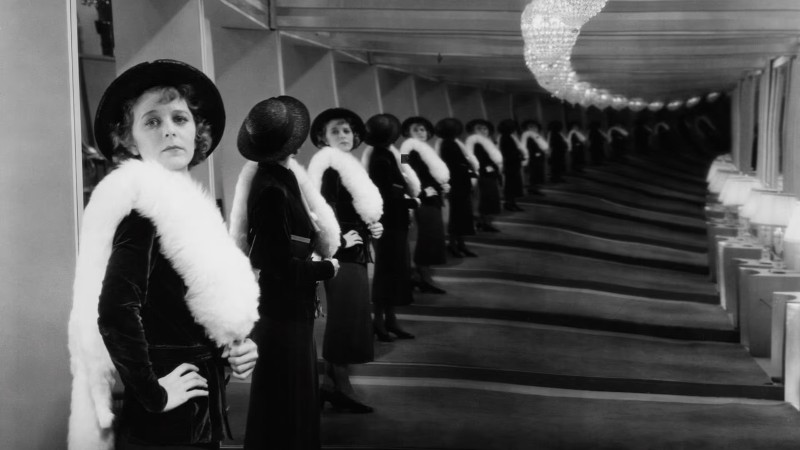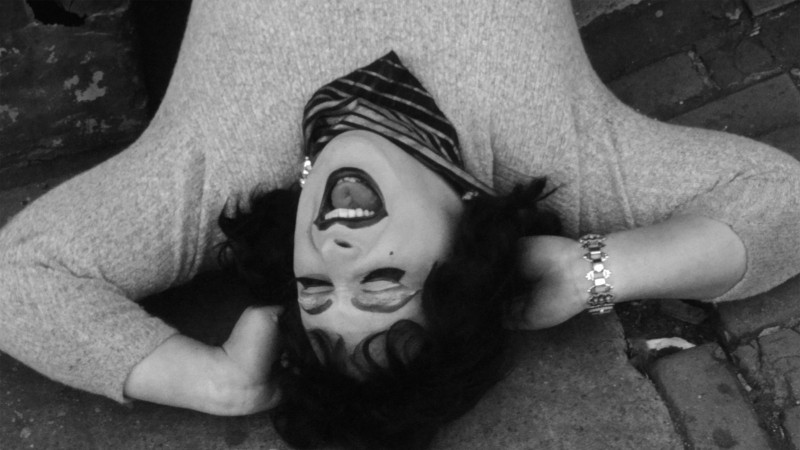Previewing Cannes 2019

Bookended by comedies, this year’s Cannes Film Festival will open tonight with Jim Jarmusch’s The Dead Don’t Die, featuring, as the tagline promises, the “Greatest Zombie Cast Ever Disassembled.” The seventy-second edition will close on May 25 with Olivier Nakache and Éric Toledano’s The Specials, starring Vincent Cassel and Reda Kateb alongside a cast of non-professional actors and autistic teens. Over the next dozen or so days, we’ll be tracking initial critical response to new work from some of the world’s most renowned filmmakers, and hopefully, a healthy round of fresh discoveries as well. A good number of these films will undoubtedly roll on to the prestigious fall festivals in Toronto and New York, and a handful of these will likely wind up on scores of year-end top tens. If we’re lucky, there may even be one or two that we’ll be referring to for generations to come as exemplary works of the seventh art.
But Cannes is also a big, noisy business. Producers descend on the Croisette bearing packages—hot director plus big star plus high concept—and seeking financing. Deadline’s Andreas Wiseman and Variety’s Ramin Setoodeh and Brent Lang have been sorting through the wares, and there are indeed a few promising projects in the works. Jane Campion, for example, is working on an adaptation of Thomas Savage’s 1967 novel The Power of the Dog that would star Benedict Cumberbatch and Elisabeth Moss. Michelle Pfeiffer, Lucas Hedges, and Tracy Letts are lined up for French Exit, based on last year’s best-selling tragicomic novel by Patrick deWitt and directed by Azazel Jacobs. Ben Foster aims to make his directorial debut with an as-yet-untitled film based on the early works and life of William S. Burroughs. Having Kristen Stewart on board won’t hurt.
And Cannes wouldn’t be Cannes without controversy. At yesterday’s press conference, artistic director Thierry Frémaux once again defended the festival’s decision to award an honorary Palme d’Or to Alain Delon, whose right-wing political leanings and past statements have offended women and the LGBT community. Frémaux insists that Cannes is honoring the art, not the man, and besides, a Palme is not the Nobel Peace Prize. A second point of contention is the scarcity of women in the official selection. As Kate Erbland points out at IndieWire, Cannes is so far adhering to the letter if not the spirit of the 50/50 by 2020 gender-parity agreement that it signed last year by including just enough films directed by women in the lineup to signal a move toward true parity. To Erbland, Frémaux “appears to still be struggling with the pledge’s requirements—and, by extension, those of a changing culture.”
The Competition
Anyone anticipating controversy sparked by a film or two in competition will have to make do without Lars von Trier this year. Perhaps a little too eagerly, the Guardian’s Andrew Pulver offers up Quentin Tarantino as an alternative contender, suggesting that critics will be on the lookout to “see if Once Upon a Time in Hollywood crosses the taste and decency line in its treatment of the real-life savagery of the 1969 murder of Sharon Tate, the then-wife of filmmaker Roman Polanski.” Tarantino ranks among the “Cannes Veterans” in BFI programmer Geoff Andrew’s breakdown of directors in the running according to the number of times they’ve been invited to the festival. Other vets include Jean-Pierre and Luc Dardenne, who’ll be bringing a story of a thirteen-year-old’s radicalization with Young Ahmed, and Ken Loach, who, with Sorry We Missed You, will remind us that many families are still struggling in the fallout of the 2008 financial crisis.
Andrew’s “Occasional Visitors” include Terrence Malick, who promises “a return to tighter scriptwriting” with A Hidden Life, based on the true story of an Austrian who refused to fight for the Nazis, and Bong Joon-ho, whose mysterious Parasite centers on one family’s consuming interest in another wealthier and more glamorous one. Filed in with the “New Guard” is Jessica Hausner, making her first film in English with Little Joe, in which a genetically engineered crimson flower may turn out to be as dangerous as it is beautiful. Céline Sciamma follows up on 2014’s Girlhood with Portrait of a Lady on Fire, the story of an eighteenth-century painter drawn to her subject, a woman about to be wed.
In his two-part Cannes preview for Film Comment, Jordan Cronk talks with two other members of Andrew’s “New Guard.” Corneliu Porumboiu’s The Whistlers is a heist movie that turns on the use of a language incorporating hissing and spitting. Kleber Mendonça Filho, who’s codirected Bacurau with Juliano Dornelles, tells Cronk that the story set in a remote Brazilian village has the “feel of a western,” and Cronk adds that the film “might be Mendonça’s most ambitious and visually spectacular film to date, and a belated coming-out party for Dornelles, whose art direction on Mendonça’s previous films has been among their most distinguishing features.”
Andrew’s final category, and potentially the most exciting one, is “New Faces.” Many will be familiar with the face of Mati Diop, first seen in Claire Denis’s 35 Shots of Rum (2008). She’s making her feature debut as a director with Atlantics, a love story set in a suburb of Dakar. Justine Triet’s Sibyl is driven by a psychotherapist’s growing obsession with her patient, an actress played by Adèle Exarchopoulos. Ira Sachs, who’s been making films for over twenty-five years now, arrives in Cannes for the first time with Frankie, which stars Isabelle Huppert. Speaking with the Cannes regular for the New York Times, Stuart Miller notes that Huppert plays “a beloved movie star who is gravely ill and has gathered her husband and her ex-husband, her son, her stepdaughter and her family, and a good friend to be with her as she faces her own mortality.”
Un Certain Regard
In the current media climate, critics are often obligated to forge fully formed opinions on a film within hours of the first screening. It can be far more rewarding to listen in as critics float ideas and exchange insights over at least a slightly longer period of time, which will make the daily dispatches from the Film Comment Podcast essential listening in the coming days. In a similar vein, a few years ago, Notebook editor Daniel Kasman hit upon the brilliant idea of covering Cannes in the form of open letters that two or more critics address to each other. Opening this year’s correspondence with Leonardo Goi, Kasman notes that Cannes is “a director’s festival above all, the one where auteurs are launched and then frequently feted again, film after film. The Un Certain Regard section, by contrast, is always peppered with a lot more question marks, making it rife with promise but also riddled by inconsistency. This year it features Beanpole, the young Russian director Kantemir Balagov’s follow-up to his revelatory 2017 debut, Closeness, and films by two big names in art-house provocation, Albert Serra and Bruno Dumont.”
Beanpole, inspired by Nobel prize winner Svetlana Alexievich’s 1985 oral history The Unwomanly Face of War, focuses on two women trying to rebuild their lives in 1945 after the devastating siege of Leningrad. Serra’s Liberté follows French libertines on the run from the ultra-conservative government of Louis XVI, and Dumont’s Jeanne follows up on his 2017 musical Jeannette: The Childhood of Joan of Arc.
At Vulture, Rachel Handler notes that Leyna Bloom, the star of Danielle Lessovitz’s Port Authority, will be “the first trans woman of color ever to open a film at Cannes.” The story of a ballroom dancer who falls for a drifter “looks like it might be a fascinating, groundbreaking debut from several on-the-rise talents.” In Annie Silverstein’s Bull, a teenage girl befriends a bullfighter past his prime. “Shot on the outskirts of Houston with a largely non-professional cast,” writes IndieWire’s Eric Kohn, “Bull is said to echo Chloé Zhao’s The Rider (another Cannes breakout) in its ability to convey the nuances of American bullfighting culture, as well as the intimate emotional struggles of impoverished people trapped on the margins of society.”
Special Screenings
The staff at the Film Stage is anticipating several of this year’s special screenings, including Abel Ferrara’s Tommaso, starring Willem Dafoe as a version of Ferrara’s own self opposite the director’s real-life wife and daughter, and Werner Herzog’s Family Romance, LLC. Herzog tells Talk Easy host Sam Fragoso that he’s made this one entirely on his own dime, flying to Japan to film the story of a man paid to impersonate missing family members. Other promising titles include Gael García Bernal’s Chicuarotes, a tale of outlaw teens in Mexico City, and most definitely Patricio Guzmán’s documentary La cordillera de los sueños, which closes out a trilogy on Chilean history begun with Nostalgia for the Light (2010) and The Pearl Button (2015).
Directors’ Fortnight
Willem Dafoe turns up again, here in the program organized by the French Directors Guild and alongside Robert Pattinson in The Lighthouse. Set in the 1890s, this “hallucinatory tale of two lighthouse keepers on a remote and mysterious New England island,” as the Fortnight puts it, is Robert Eggers’s first feature since he scored a hit with The Witch in 2015. Two more entries shot in black and white are Melina León’s feature debut, Song Without a Name, based on the true story of a Peruvian mother’s search for her stolen baby, and Lav Diaz’s The Halt. Diaz tells Jordan Cronk that his new film, set in 2034, is “a perusal of a society environed by a very repressive setup and nature’s cataclysmic spins.”
Cronk has also spoken with Beatrice Gibson about her twenty-two-minute film Two Sisters Who Are Not Sisters, featuring New York School poet Alice Notley and experimental filmmakers Ana Vaz and Basma Alsharif and shot on 16 mm by Ben Rivers. Gibson tells Cronk that it’s “fundamentally a portrait of the people in it, as well as a meditation on inheritance, responsibility, ethics, and futurity.” Alice Furtado, an editor who’s worked with Eduardo Williams, is making her directorial feature debut with Sick, Sick, Sick, the story of a young girl who loses her new friend to hemophilia.
The Fortnight’s also presenting new work by filmmakers who are hardly strangers to cinephiles. Takashi Miike will return to Cannes with First Love, in which a boxer and a call girl are chased through Tokyo by a corrupt cop, a yakuza, and an assassin. Bertrand Bonello’s Zombi Child, said to be inspired by the work of Jacques Tourneur, is split between the Haiti of 1962 and contemporary Paris. And Call Me by Your Name director Luca Guadagnino will surely draw a crowd with the cast for his thirty-five-minute film, The Staggering Girl: Julianne Moore, Alba Rohrwacher, KiKi Layne, Kyle MacLachlan, Marthe Keller, and Mia Goth.
Critics’ Week
The program of first and second films organized by the French Syndicate of Cinema Critics naturally offers less in the way of immediate name recognition but makes up for that lack with its presentation of auspicious new talents. One name does leap out, though. Hlynur Pálmason—whose 2017 feature debut Winter Brothers won four awards in Locarno—is bringing A White, White Day, the story of a police chief’s determination to discover whether his friend was having an affair with his wife before she died. And Brandon Cronenberg, son of David, will present the intriguingly titled short film Please Speak Continuously and Describe Your Experiences as They Come to You. Throughout this week and the next, many critics will be doing just that.
For news and items of interest throughout the day, every day, follow @CriterionDaily.



